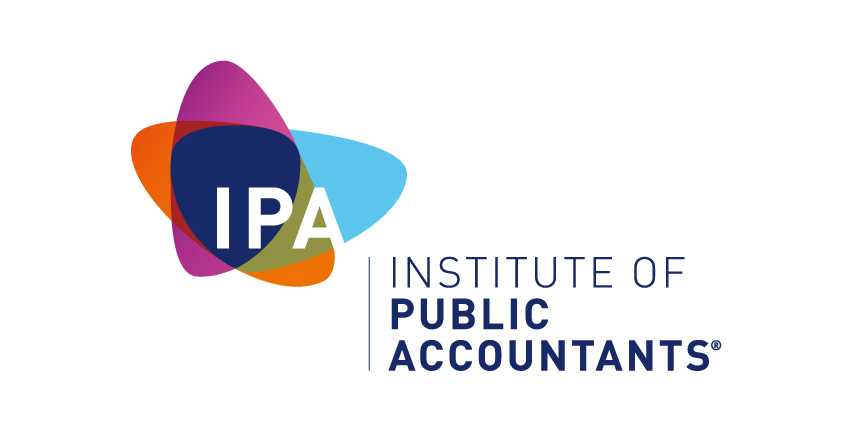IPA Rules and Standards
The IPA is a professional accounting body that works with the accounting profession, commerce and industry to support, promote, protect and maintain a body of qualified accountants.
The IPA mandate a detailed set of professional and ethical standards that all IPA Members must comply with to maintain their membership.
IPA Constitution and By-Laws
The IPA Constitution and By-Laws set out the professional and ethical standards for Members, including information about the conduct of the IPA and its Members and other important requirements. The IPA Constitution and By-Laws can be accessed below:
View the IPA Constitution here
View the IPA By-Laws here
Professional and ethical standards
The IPA requires all members to conduct themselves and their professional activities at the highest level of standards, representing not only themselves but the IPA and all other members.
Professional and ethical standards are promulgated either directly by the Board of Directors, via pronouncements or by the Accounting Professional and Ethical Standards Board (APESB), via APESB standards.
In general, APESB standards, guidance notes or authoritative interpretations will replace an existing IPA Pronouncement, to the extent that the APESB standard covers the same issues. However, if a standard does not exist, the Pronouncement issued by the IPA Board of Directors will remain in force.
It should also be noted members have an obligation to abide by all standards, guidance notes and authoritative interpretations issued by the Auditing & Assurance Standards Board (AUASB) and all standards, guidance notes and authoritative interpretations issued by the Australian Accounting Standards Board (AASB).
APESB
The primary objects of APESB are:
- To develop and issue in the public interest professional and ethical standards that will apply to the membership of the professional bodies.
Professional and ethical standards include but are not limited to: - Code of ethics for professional accountants;
- Miscellaneous professional statements and joint guidance notes; and
- Such other ethical issues or similar matters of interest in respect of the accounting profession.
- To provide a formal and rigorous forum for the consideration, promulgation and approval of professional and ethical standards, performed in an open, timely, independent and proactive manner.
For more information about APESB, visit apesb.org.au.
The APESB Standards members must abide by are:
APES 100 Code of Ethics
APES 200 All Members
- APES 205 Conformity with Accounting Standards
- APES 210: Conformity with Auditing and Assurance Standards
- APES 215: Forensic Accounting Services
- APES 220 Taxation Services
- APES 225 Valuation Services
- APES 230 Financial Planning Services
APES 300 Member in Public Practice
- APES 305 Terms of Engagement
- APES 310 Client Monies
- APES 315: Compilation of Financial Information
- APES 320: Quality Control of Firms
- APES 325 Risk Management for Firms
- APES 330 Insolvency Services
- APES 345 Reporting on Prospective Financial Information prepared in connection with a public document
- APES 350 Participation by Members in Public Practice in Due Diligence Committees in connection with a Public Document
GN 20 All Members
- GN 20 Scope and Extent or Work for Valuation Services
- GN21 Valuation Services for Financial Reporting
GN 30 Members in Public Practice
- GN 30 Outsourced Services
- GN 31 Professional and Ethical considerations relating to Low Doc Offering Sign-offs
GN 40 Members in Business
- APES GN 40 Ethical Conflicts in the Workplace – Considerations for Members in Business (APES GN 40)
- APES GN 41 Management Representations (APES GN 41)
Before promulgation of a new standard, an exposure draft of the new/revised standard will be available for public comment. The IPA seeks member feedback on these draft standards and your views will then be incorporated into the final IPA submission to the APESB, AUASB or AASB.
IPA Pronouncements
The current IPA Pronouncements are set by the IPA Board of Directors and as follows:
- Pronouncement 4: Quality Review Program (QRP) (v2.2)
- Pronouncement 7: Continuing Professional Development (v3.1 ends on 30 June 2021)
- Pronouncement 7: Continuing Professional Development (v4.1 ends on 30 June 2024)
- Pronouncement 7: Continuing Professional Development (v4.2 ends on 30 June 2027)
- Pronouncement 8: Continuing Professional Development AAT cohort (v1.0)
- Pronouncement 12: Administration of Member Compliance (v1.5)
Joint Accounting Bodies
The three accounting bodies in Australia have set up the Joint Accounting Bodies (JAB) as a means to promote the accounting profession. JAB has released a number of guides to assist members:
- Independence guide
- Competency requirements for assurance practitioners undertaking review engagements in Australia
SMSF Auditors – Withdrawal of Competency Standards
Chartered Accountants Australia and New Zealand (CA ANZ), CPA Australia and the Institute of Public Accountants (IPA) (“the Joint Accounting Bodies”) have withdrawn Competency Requirements for Auditors of Self-Managed Superannuation Funds. This is to simplify the SMSF auditor competency framework and eliminate duplication that has emerged, it does not change the competency requirements of SMSF auditors.
Originally issued in February 2008, it set out the minimum competency requirements for members of the three accounting bodies who sign audit reports for SMSFs. It formed the basis of ASIC Class Order CO 12/1687 Competency Standards for Approved Self-Managed Superannuation Fund (SMSF) Auditors in December 2012. ASIC has now repealed the Class Order because, overtime, it has gradually been superseded by:
- Requirements in the:
- Superannuation Industry (Supervision) Act 1993 and the Superannuation Industry (Supervision) Regulations 1994
- Auditing and assurance standards issued by the Auditing and Assurance Standards Board (AUASB)
- Professional, ethical and independence requirements in APES 110 Code of Ethics for Professional Accountants (including Independence Standards) issued by the Accounting Professional and Ethical Standards Board (APESB).
- The ASIC registration process for becoming an Approved SMSF Auditor, including the SMSF auditor competency exam.
- The ASIC and Australian Taxation Office (ATO) regulatory oversight functions.
Importantly, the knowledge required by candidates to succeed in the SMSF auditor competency exam is set out in the learning objectives on the ASIC website.
